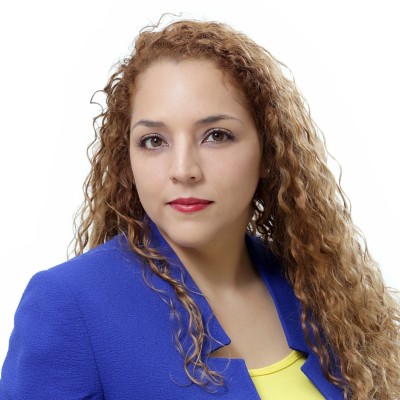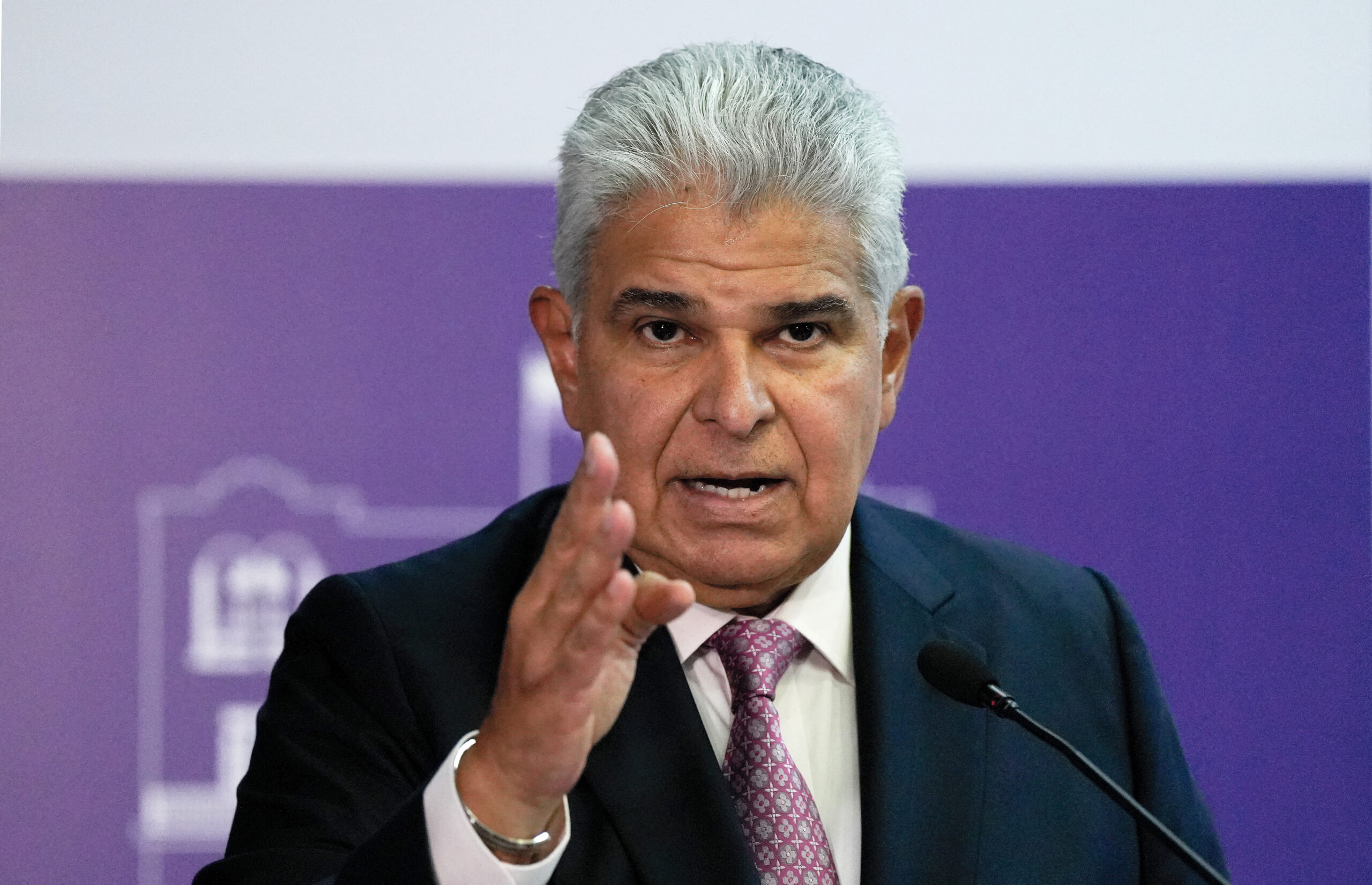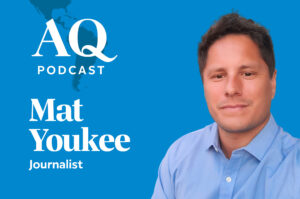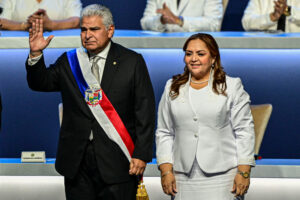This article is adapted from AQ’s special report on food security in Latin America
PANAMA CITY — Panama faces enormous challenges. The Panama Canal’s recent water shortages caused a months-long traffic jam for shipping, leading to the loss of many customers. The country’s border with Colombia at the Darién Gap, which over 500,000 people traversed in 2023, has become a major flashpoint for migration in the Americas.
The country of 4.2 million people is also facing its most serious fiscal crunch in decades, its social security system is at risk of collapse, and investment is falling. Panama’s largest mine, responsible for around 4% of the country’s GDP, was shuttered last year after massive demonstrations and a Supreme Court ruling against its contract, which only added to investor concern.
The person now charged with addressing these multiple flashpoints was an unexpected, last-minute candidate in this year’s election. After Ricardo Martinelli, a billionaire and popular former president who ran Panama from 2009-14, was barred from the race for his conviction on major money laundering charges, Martinelli tapped José Raúl Mulino to replace him. In Panama’s single-round election, Mulino won comfortably with 34% of the vote.
“I’m nobody’s puppet,” Mulino said in his inaugural address on July 1, responding to critics of his campaign slogan: “Mulino is Martinelli and Martinelli is Mulino.” He has promised to tackle Panama’s economic problems head-on, “close” the Darién Gap, and maintain his direct demeanor. “I’m center-right. I’m never going to turn to the left,” he said in a post-election interview.
Internationally, Mulino seeks close relations with the U.S. and Western investors—but also a free trade agreement with China. And just as Panama seeks broader cooperation on migration, it will have a rotational seat on the UN Security Council in 2025-26, which Mulino is expected to try to leverage.
As the protégé of a controversial figure, Mulino, 65, will have to walk a fine line to restore Panama’s finances and reputation. Analysts expect him to continue being both decisive and divisive. Former President Ernesto Pérez Balladares (1994-99) said Mulino doesn’t shy away from taking risks in politics. “He’s a brave, stubborn fighter,” Pérez Balladares told the Panama Noticias Network in May.
Mulino has already eliminated housing subsidies and price controls on rice; ordered the air and naval defense forces to take over port and airport security from the police; imposed curfews in three cities for minors under 18 to address street crime; and rolled out a new 1,000-member anti-gang police force. His assertiveness may allow him to push through a $1.6 billion project to dam the Indio River and make the Canal more resilient, reopen the unpopular mine, crack down on migration, and make painful social security adjustments.
But observers also say Mulino likely won’t advance much on transparency or inequality. And if major protests again coalesce around these themes, his track record suggests he may not hesitate to use mano dura.
What seems clear is that his agenda will be ambitious—and reverberate far beyond Panama’s borders.
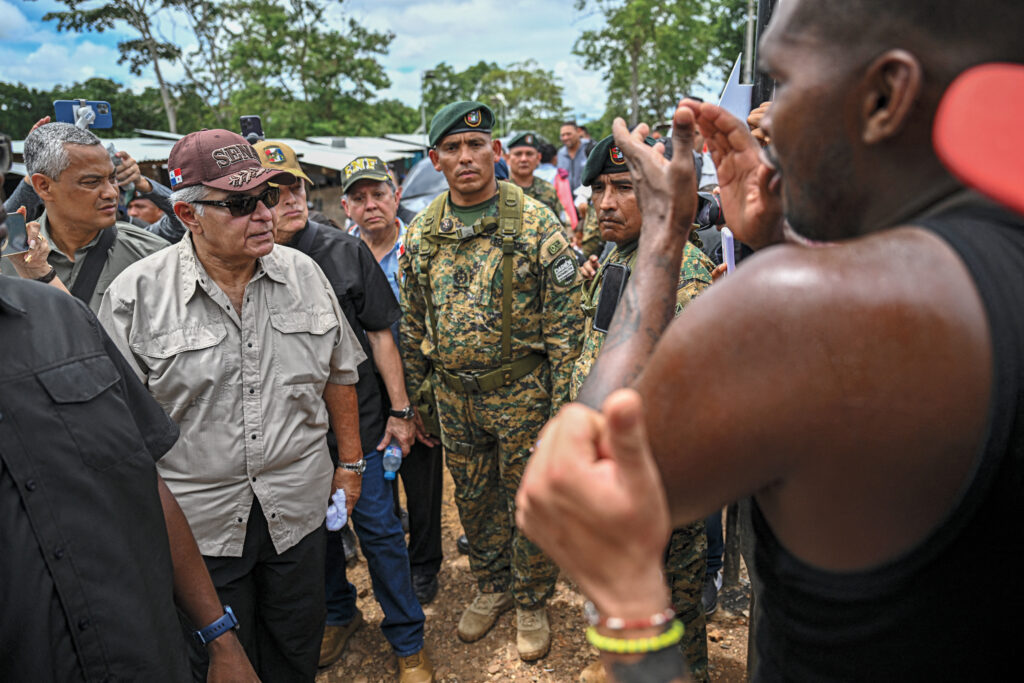
His agenda will be ambitious—and reverberate far beyond Panama’s borders.
Mulino’s political instincts
Mulino has been in politics for decades, but always on the outskirts of Panama’s most powerful political machines. He grew up in a middle-class household in the Chiriquí province of western Panama, where his mother was a public school teacher and his father rose through the local political machine to become governor, giving his son early exposure to the art of climbing the ranks.
After studying law in Panama City and the U.S., Mulino co-founded a law firm and plunged into politics as a high-profile opponent of the Manuel Noriega dictatorship. After the U.S. overthrew Noriega in 1989, the new democratic government led by President Guillermo Endara tapped Mulino as deputy foreign minister. When the foreign minister died, Mulino took over the ministry for a year until a new administration came to power in 1994.
He then helped to lead a political party, Solidaridad, that sought to disrupt a two-party system and grew slowly into a pole of center-right organizing. In 2006, it fused with another bloc that ran Martinelli as its candidate in 2008. Martinelli, a supermarket magnate, won by styling himself an outsider and disruptor.
This is when the two men drew close. Martinelli put Mulino at the head of the Security Ministry after promising to crack down on crime. Mulino put more police on the streets, and they set up checkpoints throughout the country that were controversial but also led to a drop in crime.
In 2010, Martinelli passed a reform package that banned road-blocking protests and cut labor and environmental regulations, sparking nationwide protests. Mulino condemned the demonstrations and ordered a crackdown using tear gas and rubber bullets. In northwest Panama, two demonstrators were killed and dozens more were at least partially blinded. (The reform was eventually overturned.) In 2012, another response to protests, this time over hydroelectric dam and mining projects, left three people dead.
But Mulino’s toughest challenge arose over a contract he signed as minister to acquire military equipment and services from Italian conglomerate Finmeccanica. One of the Italians who brokered the deal, Valter Lavitola, was investigated in Italy for, among other offenses, allegedly bribing Panamanian officials and attempting to blackmail Italian President Silvio Berlusconi.
Lavitola served four years in prison, and Panama’s authorities placed Mulino in pre-trial detention on related charges in October 2015. He was released six months later on parole. In 2017, the Supreme Court dismissed the case on procedural grounds, ruling that his detention had been illegal. Mulino maintained his innocence and remained defiant throughout. In his inauguration address, he said, “My family and I suffered personally at the hands of a political, judicial and media system that operated to hobble its adversaries in the most cowardly, immoral manner.”
Mulino has also stood by Martinelli, characterizing all charges against him as politically motivated. Martinelli now also faces charges related to the region-wide Odebrecht scandal; two of his sons were convicted in U.S. federal court in 2022 for facilitating $28 million in bribes, and a lawyer for one said in court that they acted at Martinelli’s direction. (Martinelli denies any wrongdoing.)
Yet Martinelli remains perhaps the country’s most popular politician, remembered for rapid growth, declines in poverty, and major infrastructure projects, including the Panama City metro. Mulino rode Martinelli’s popularity to victory. On election day, he visited Martinelli at the Nicaraguan embassy, where he has been seeking asylum since February to avoid a 10-year prison sentence.
Mulino rode Martinelli’s popularity to victory.
Pivoting to govern
Mulino has largely tapped Martinelli loyalists for his Cabinet. Security Minister Frank Ábrego was Martinelli’s Border Service chief, for example, and Commerce and Industry Minister Julio Moltó led Martinelli’s security council. The council was implicated in allegations that Martinelli’s government monitored the communications of dozens of political opponents. Martinelli was arrested for this in the U.S. in 2021 and extradited to Panama, where he denied wrongdoing and was acquitted for lack of evidence.
But Mulino made an important exception with his selection of Economy and Finance Minister Felipe Chapman, who has been critical of Martinelli. He’s seen as a pick qualified to tackle unemployment, which is the public’s top concern, followed by high cost of living and corruption, according to polling from Prodigious Consulting.
“Our economy unfortunately doesn’t generate employment because investor confidence is so low,” labor economist René Quevedo told AQ. Credit ratings service Fitch downgraded Panama’s bonds to junk status in March, citing fiscal deficits as well as the “tense social backdrop and party fragmentation” likely to impede efforts to address them.
Mulino’s most immediate challenge will be to rescue the social security system. He has received broad praise for promising not to privatize it while insisting that contributors may have to pay more, and for holding frequent consultative meetings with a range of sectors. The process “has been very transparent,” political analyst Rodrigo Noriega told AQ. “Mulino brought together all the relevant actors to consult them—not to drag his feet, but to hear concrete proposals.” The government aims to pass major legislation in December.
Mulino is still seeking a final solution for the copper mine, while Canadian firm First Quantum Minerals (FQM) sues for $20 billion through arbitration. “Panama doesn’t negotiate with a gun to its head,” Mulino said at his inauguration.
The mine was shut down suddenly last year, and Mulino has floated the idea of reopening it with stricter regulations to finance an environmental cleanup and proper closure. This will be decided next year, Moltó, the commerce minister, told AQ, adding that the government plans to hold a plebiscite on the process to demonstrate transparency and attentiveness to public concerns.
The administration is taking a similar approach to the massive reservoir to support the Canal. Mulino is backing the project and plans to present a concrete plan next year. The project may displace several thousand people, and Mulino has pledged to dialogue with affected communities “without hostilities.”
Mulino has also pushed forward a long-delayed tunnel under the Canal to expand the capital region’s popular metro system. In about two years, the project is expected to bring metro service to communities west of the Canal for the first time. “We Panamanians know how to do big things,” Mulino said at a groundbreaking ceremony in September.
Other initiatives seem less pragmatic. Mulino is promising a train project estimated to cost $5 billion, generate 6,000 jobs, and stretch over 390 kilometers from Panama City to his home province of Chiriquí. But it’s unclear how he’d finance it.
The project has reportedly received interest from Chinese builders, just as Mulino is jumpstarting negotiations with China on a free trade agreement. An agreement with China would aim to create jobs by attracting Chinese investment, especially in infrastructure, Moltó said.
Mulino may be well positioned to negotiate with China without jeopardizing Panama’s relationship with the U.S., since the U.S. seems intent on soliciting his cooperation on migration. On his first day in office, Mulino signed an agreement with the U.S., securing support for border operations and deportation flights, the first of which took off in August.
While such deterrence policies are expected to push migrants toward more remote and dangerous routes, Panama has pledged to abide by international law. “Panama’s position is that there is nothing humanitarian about the route these people are taking, given the number of people who die, the number of children who experience trauma,” said Zamira Gozaine, a former director of Panama’s National Migration Service.
These moves are popular in Panama, which saw migrant traffic equivalent to 12% of its population in 2023. “If it means putting in place so-called ‘inhumane’ policies to close the way to migrants passing through, it’s a way of protecting our country, and as president he has to do this,” said Itzela Solís, 31, a resident of Los Santos province, which is far from the Darién but has nonetheless seen a surge of migrants.
The U.S. seems intent on soliciting his cooperation on migration.
At the UN General Assembly in September, Mulino pushed for greater and more aggressive cooperation to reduce migration. “We feel that we don’t have the international support necessary to address this situation that is so painful when viewed through a humanitarian lens,” he said, making clear his administration will focus its diplomacy on the issue.
“Mulino’s going to do what’s popular whenever possible,” Noriega, the political analyst, told AQ. “The style I’m seeing from him isn’t authoritarianism,” he said, “but rather soft populism.”


